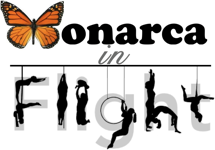Potassium: It’s what’s getting on your nerves
Go ahead and eat those bananas, and potatoes, and apricots, and white beans, and coconut water, and and…
What is potassium and why is it important for us? Potassium is the third most abundant mineral in the body. It is necessary for the normal functioning of all cells. It helps the body regulate fluid balance, regulate muscle contractions, and maintain healthy nerve function. It is sometimes referred to as an electrolyte because once inside your body, it carries a small (positive) electrical charge that activates various cell and nerve functions. Your body uses this electricity to manage a variety of bodily processes. I am particularly fascinated by potassium’s role in the nervous system.
The nervous system relays messages between your brain and body. These messages are delivered in the form of nerve impulses and help regulate your muscle contractions, heartbeat, reflexes, and other bodily functions. Without going into too much detail, nerve impulses are generated by potassium and sodium ions moving in and out of cells through sodium-potassium pumps. This movement of ions changes the voltage of the cell, which activates a nerve impulse that moves from one nerve cell to the next until it reaches the brain or a muscle for action. When triggered by nerve signals, muscle cells alter their sodium/potassium balance as part of the process that they use to contract and move our bodies. The sodium-potassium balance is so important for our bodies that sodium-potassium pumps use up about a third of our cell’s main energy source.
If you’ve ever been to my flex classes, I often talk about the importance of nervous system control, especially as we get into our end-range. As those signals from the muscles and tendons rush up to the brain, I want the deep breathing, calming signals from the brain to rush back down to the muscles and tendons. Ultimately, I’m building stretch tolerance in my body by creating a nervous system pathway of calm. Adequate intake of potassium helps this process.
Fun fact: The speed of a nerve impulse varies with the type of nerve impulse the nervous system is sending and how well the pathway is myelinated. Some signals such as those for muscle position, travel at speeds up to 119m/s. Nerve impulses such as pain signals travel slower at 0.61m/s. Touch signals travel at speeds of 76.2m/s. This is why when you stub your toe, you feel the stub first before you feel the pain.
Despite potassium’s importance, it is estimated that most adults do not meet their daily needs. This is likely due to the Western-style diet, which favors processed foods over whole plant foods that are high in potassium — such as fruits, vegetables, beans, and nuts. Dietary surveys consistently show that people in the United States consume less potassium than recommended, which is why the 2015–2020 Dietary Guidelines for Americans identifies potassium as a “nutrient of public health concern.” It is generally agreed that only a mere 5% of the American population get enough potassium every day, while some articles indicate even lower.
So what can you do about it? For starters, we all know that bananas are high in potassium (we all know that adage: “eatbananas if you get cramps!”). I love bananas because they make the perfect portable snack. However, they are NOT the highest potassium content food. Check out this USDA list for a very good breakdown of foods sorted by category and potassium content per standard portion size: https://www.dietaryguidelines.gov/food-sources-potassium. You’ll find surprising foods such as beet greens, chard, potatoes (with skin), onions, white beans (such as navy beans. Ever wonder why the US Navy insisted on using this cheap food for their crew?), prune juice, kiwi (which by the way, also provides you with more than your daily requirement of Vitamin C!), clams, tuna, yogurt, and coconut water. (Did you know we have coconut water in the studio refrigerator for purchase? If you enjoy the taste, it’s a refreshing way to refuel your potassium levels after class.)
Wanna geek out some more about sports nutrition, especially pertaining to flex? Come find me!

